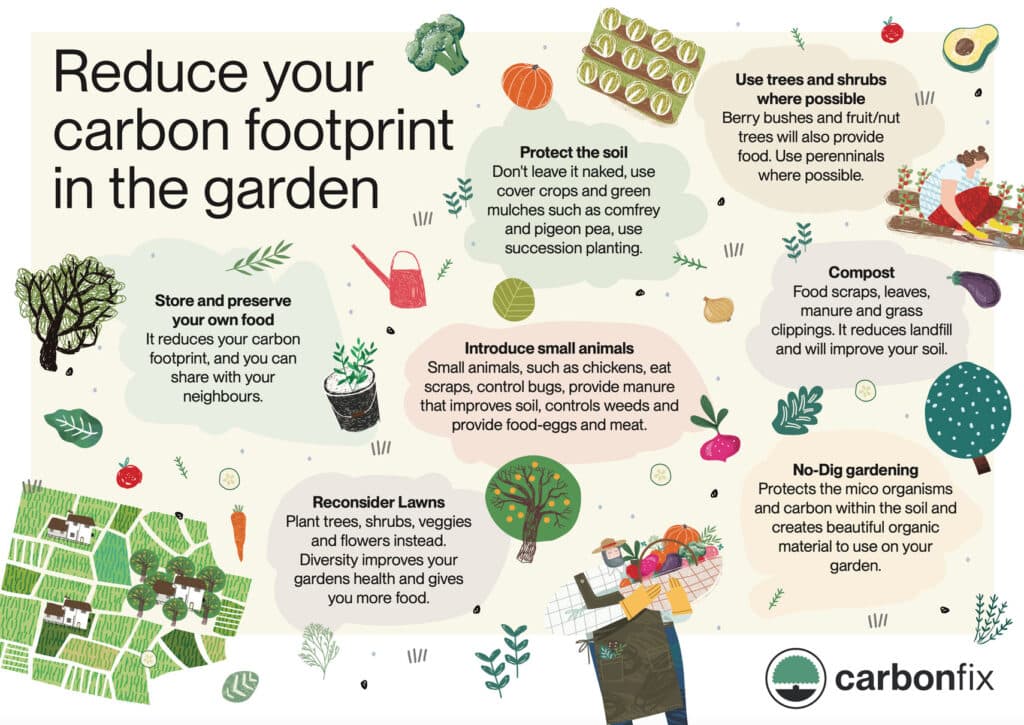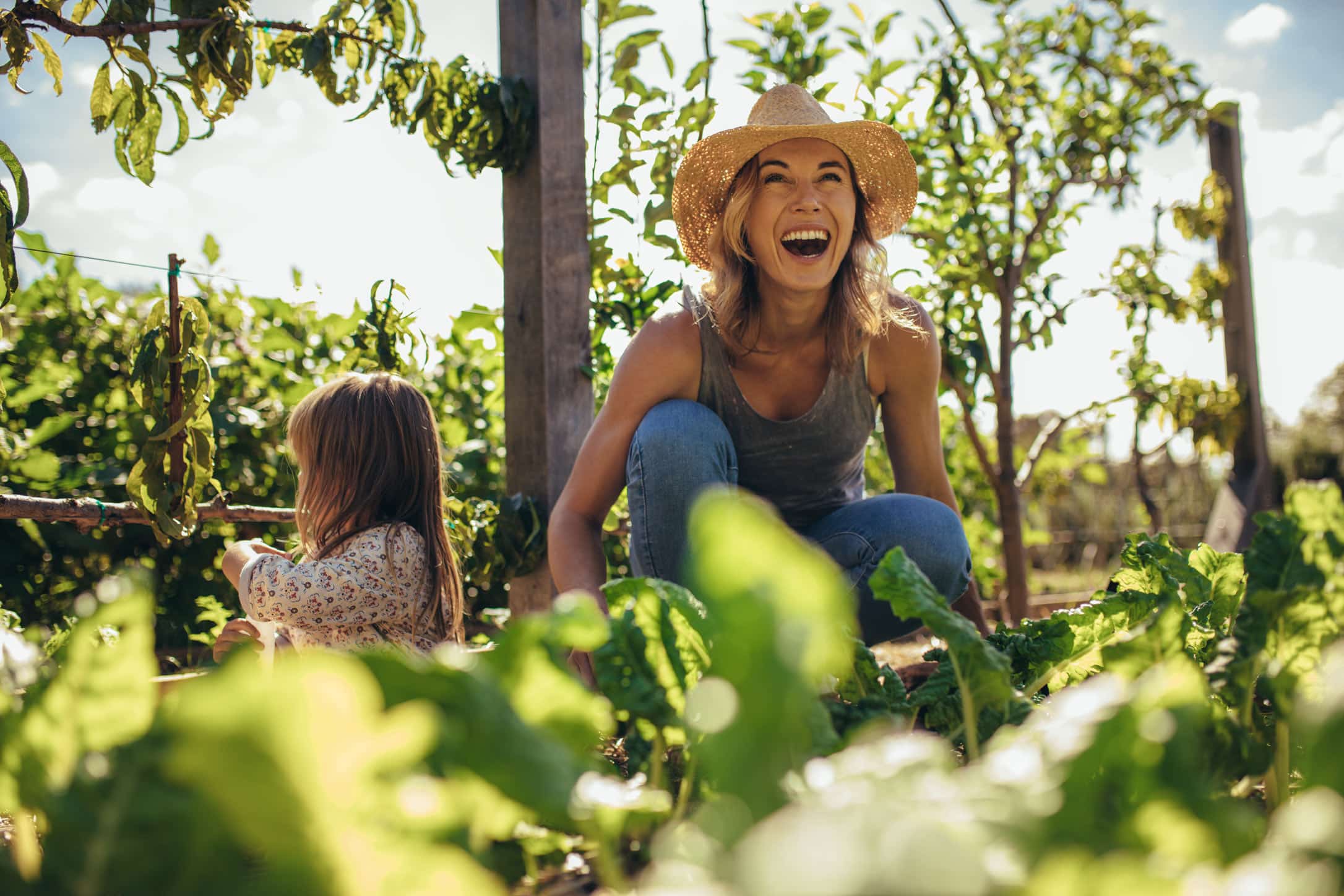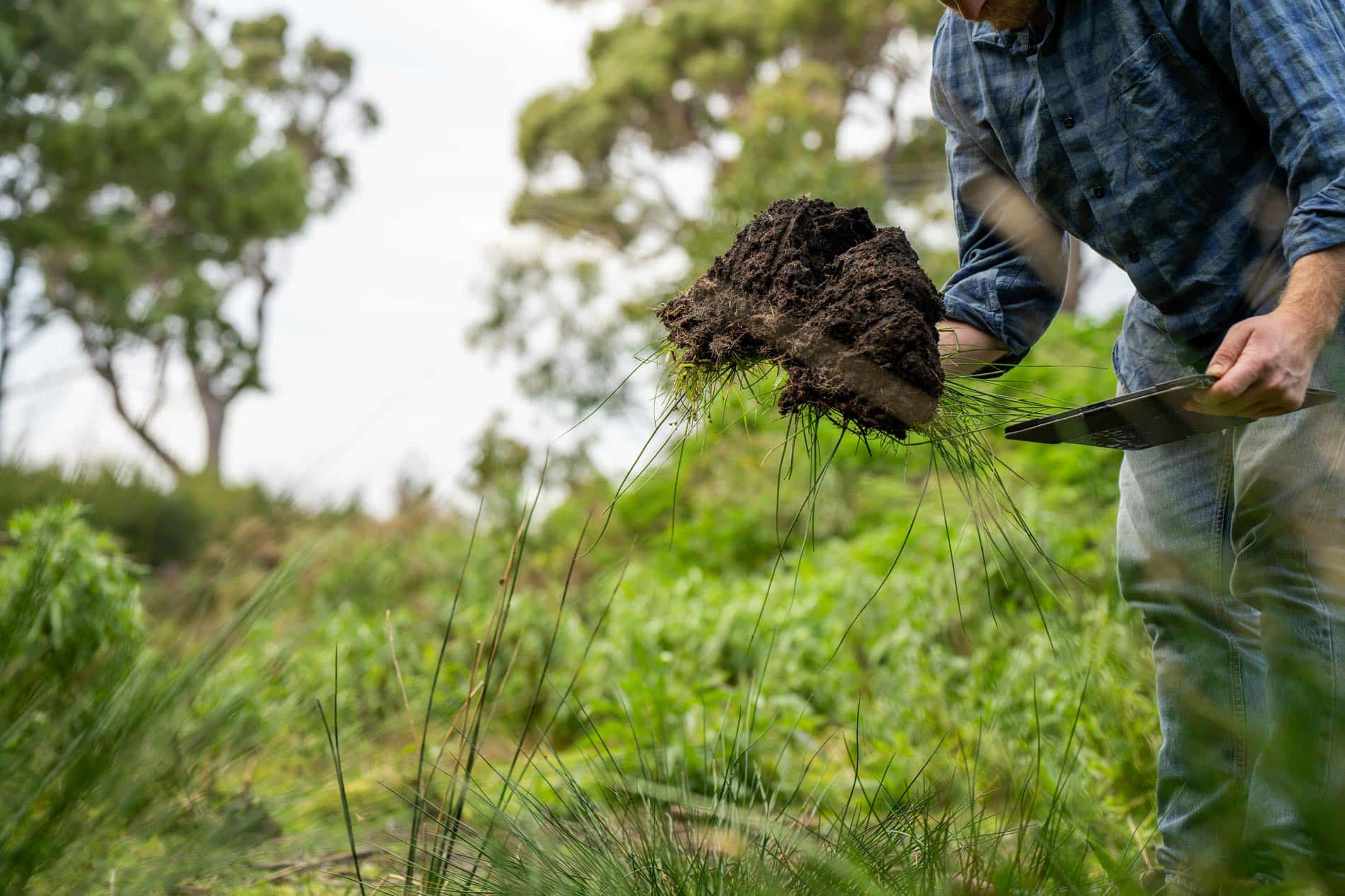Protect Your Soils
Healthy soils are vital to both your garden and the environment. Protecting soil through mulching, planting cover crops, and reducing soil disturbance can enhance its ability to store carbon. A well-structured soil rich in organic matter not only supports strong plant growth but also traps carbon dioxide from the atmosphere, acting as a carbon sink. To protect your soils, avoid over-tilling, which can release stored carbon, and instead use methods that improve soil biodiversity and retain moisture, such as applying organic compost or biochar.
Use Trees and Shrubs Where Possible
Trees and shrubs act as long-term carbon storage solutions in your garden. By planting native species suited to your local Australian climate, you can create a habitat for wildlife, reduce the need for irrigation, and sequester carbon over the lifetime of the plant. Trees capture carbon dioxide as they grow, locking it into their trunks, branches, and roots. As a bonus, they provide shade, reducing the need for energy-intensive cooling in your home, while shrubs can act as windbreaks, improving microclimates in your garden.
Compost
Composting is one of the easiest ways to reduce your carbon footprint while improving garden health. When organic waste like food scraps, lawn clippings, and leaves are sent to landfill, they produce methane, a potent greenhouse gas. By composting, you divert this waste and transform it into a nutrient-rich fertilizer that enhances soil structure and stores carbon. Your garden will benefit from increased biodiversity, while you reduce reliance on synthetic fertilizers that often have a higher carbon footprint.
Introduce Small Animals
Small animals like chickens, ducks, or even bees can be beneficial for reducing your garden’s carbon footprint. Chickens and ducks can help with pest control, reduce food waste by consuming scraps, and their manure is an excellent natural fertilizer. Bees, on the other hand, play a critical role in pollinating plants, supporting healthy biodiversity. By integrating animals, you create a more sustainable ecosystem, reducing the need for chemical interventions and synthetic fertilizers, which contribute to emissions.
Store and Preserve Your Own Foods
Growing and preserving your own fruits and vegetables not only provides fresh, nutritious food but also cuts down on the carbon footprint associated with food transportation and packaging. Homegrown produce can be dried, canned, or frozen, allowing you to enjoy seasonal bounty year-round. By reducing your reliance on store-bought items, you help lower the demand for mass food production and distribution, which typically involves significant energy use and greenhouse gas emissions.
Reconsider Lawns
Lawns require a lot of water, mowing, and often fertilizer, all of which contribute to greenhouse gas emissions. Instead of a traditional grass lawn, consider planting native ground covers, wildflower meadows, or drought-tolerant plants that require less maintenance. Reducing the size of your lawn can also provide more space for trees, shrubs, or a vegetable garden that actively stores carbon. A low-maintenance, biodiverse garden will not only save water and energy but also support local wildlife and pollinators.
No-Dig Gardening
No-dig gardening helps protect the structure of your soil and reduces carbon emissions. By layering organic materials like compost, straw, and mulch on top of the soil rather than turning it over, you preserve the microorganisms and fungi that store carbon and keep your soil healthy. This method minimizes soil disturbance, which is important because digging can release carbon dioxide stored in the soil. No-dig gardening also reduces the need for synthetic fertilizers, further lowering your garden’s environmental impact.




